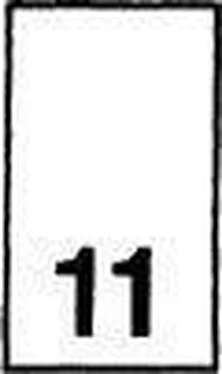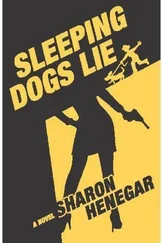“Anyway, it’s late at night, and this character has just finished turning my friends’ little ambush into what looked like a busy day on the Eastern front. But he doesn’t go away. Instead he takes a little drive over to Castiglione’s. The rest of it nobody knows much about, because everybody there is, as usual, dead. This includes old Castiglione, his four bodyguards and—get this—a special agent of the FBI who just happened to be there because his job was to sit in a car down the street and take pictures of everybody who came to the old man’s house.
“So when I wake up the next morning, not only is Senator Claremont still dead, but so are five or six men who worked for me, and the lawyer who set up some corporations for me and who hid Arthur Fieldston so he couldn’t accept a subpoena. So I’ve got millions of dollars in accounts that only Arthur Fieldston can sign on, and no living people on the spot to find him, and my little tax problem has turned into a multiple-murder case involving a federal officer. Then around noon things got ugly. I didn’t get any phone calls; I got visitors. All day and most of the night, lots of very important men pulled into my driveway and came into my parlor and sat in my chairs and asked me what the hell I was doing breaking a truce that had kept Las Vegas open for forty years. Some of them thought I’d killed Castiglione, some of them didn’t know what to think, but all of them knew that when the sun came up in Vegas there were about a dozen corpses lying around out there, and that maybe half of them belonged to me and the others were Castiglione’s.” Balacontano seemed to be out of breath, but he added quickly, “Except for the federal cop, who was going to attract such an army of federal undercover types that even the pay phones would be tapped for the next hundred years.”
“Why did he go to Castiglione’s? Did he think Orloff was working for Castiglione?”
“Hell, no,” said Balacontano. “He did it because he knew it was going to create confusion. And it worked. To tell you the truth, I don’t think he had any idea who those guys were working for. But he was sure that as soon as the newspapers printed their names, there’d be people a whole lot scarier than he was who would know. The thing that scared me wasn’t who showed up at my house; it was who didn’t. I spent the next few days kissing powerful asses because I was going to need them on my side if things blew up. Even after I did, it was a near thing.”
Elizabeth prompted him. “What did you do about the killer?”
Balacontano studied the little woman who sat across from him and had a thought, but then dismissed it. She was a bureaucrat. “I did what anybody would do. I hunted him with everything I had.”
He stared at her for a reaction, but she waited in silence. Balacontano shrugged. “He found Arthur Fieldston before I did. I don’t know how far he was thinking ahead. Maybe he knew that I couldn’t get my money back if Fieldston was dead, and then he thought of the rest of it after he’d killed him. He buried Fieldston’s head and hands behind the stable at my farm, then made a phone call to the Justice Department. Nobody ever saw him again until now.” He looked at Elizabeth. “You’ve got to help me.”
“I’ll do my best to find him.”
“I’m not talking about him; I’m talking about me. He’s just the way to get me out of here.”
“I’m not your attorney, but if you do get an appeal, I wouldn’t tell the judge everything,” said Elizabeth.
“I shouldn’t have to tell the bastard anything,” Balacontano said. “I’m not … wasn’t some errand boy. Does anybody seriously think I went out and shot Arthur Fieldston, then sawed off his head and hands in Arizona and brought them across the country to bury them in my yard? The only two parts you can use to prove who it was? What do you think I am, Edgar Allan Poe? Well?”
“I’m wondering who you think Edgar Allan Poe was,” said Elizabeth.
“You know what I mean. I was an important man. When they have those cars with power surges that kill people, do they go to the president of the company and dig up his back yard to see if he’s buried some suspicious carburetors? No. Does anybody even wonder who made the anonymous phone call to the Justice Department?”
Elizabeth had asked the same question in as many words ten years ago, but her superiors had been too eager to convict Balacontano to listen. She had asked it so many times that they had sent her on a vacation and deleted her name from the record of the investigation so that the defense couldn’t call her to testify. “Can you tell me where to find him?”
The old man’s anger and frustration were barely controllable now. “If I knew that, do you think I’d be sitting here talking to you? You’re the one who’s got to hunt him down.”
Elizabeth stood up and glanced at her watch. “Just for the record, do you want to tell me his name?”
“No,” said Balacontano. “I don’t know his name. What the hell does he need a name for?”

He hated to throw away the name Charles Ackerman. It had been a comfort since Eddie Mastrewski had given it to him as a child, and it was his oldest possession. Eddie the Butcher had always assumed that someday a lapse of professionalism would put an end to him, and the young boy he had taken in would be alone and running. The first thing he would need was money, and the second was a plausible identity, and Eddie knew how to provide him with both. The money Eddie wrapped in a package that looked exactly like the ones he kept in the freezer for the cat. Like them, it was marked “Giblets and Gizzards for Cat.”
The identity had been almost as easy in those days. Eddie took the boy for a walk in the sprawling forty-acre Catholic cemetery at the edge of town one sunny Memorial Day when hundreds of other families were wandering over the grass and looking uncertain about exactly where Grandpa was buried. He’d had the foresight to buy a small bouquet of forget-me-nots on the way, which he carried with just the right degree of discomfort. They had taken a pleasant walk in the sunshine to look for the gravestone of a child born in 1950, ’51, or ’52 who had died after the age of five but before the age of twelve. They had found six of them, and Eddie had dutifully copied down the names, the dates and his estimate of the cost of the stones.
Then they went to look at a couple of graves of men they had encountered professionally, and Eddie had explained his theory of reasonable fees. It was his hypothesis that the cost of a man’s gravestone should be proportionate to the fee Eddie had received for killing him. Important men left lots of money, had lots of admirers—or, at least, associates—and had heirs who would not miss this final chance to remind people that they had been relations of powerful men. Killing these men was potentially more difficult and dangerous than killing the ones with small domestic granite plaques that bore only a name and two dates. Eddie had appeared satisfied, even though two of the men had eight-foot-high Italian marble structures the size of toolsheds, with carved birds, flowers, statues of angels holding trumpets and lengthy passages of verse that might have been copied verbatim from Hallmark Mother’s Day cards.
The next day Eddie had taken him to the county hall. There Eddie had paid three dollars for a duplicate birth certificate for his nephew, Charles F. Ackerman. He had eliminated the other five possibilities because two had names that didn’t seem likely–he remembered that one of them was Wung Cho Fo; two had graves in the middle of huge empty plots, which meant that they still had lots of living family members the boy might someday meet; and one had a gravestone of such massive proportions and extravagant opulence that it must have been a sign of either conspicuous wealth or a memorable death. Thereafter, Charles Frederick Ackerman used his birth certificate to obtain a social security card, used both to apply for a driver’s license, then opened a bank account in a city a hundred miles away, where he also obtained a library card and a post-office box. Then he began to get on mailing lists, and Charles F. Ackerman took on a kind of life, with credit cards, club memberships and finally even a pistol permit.
Читать дальше













